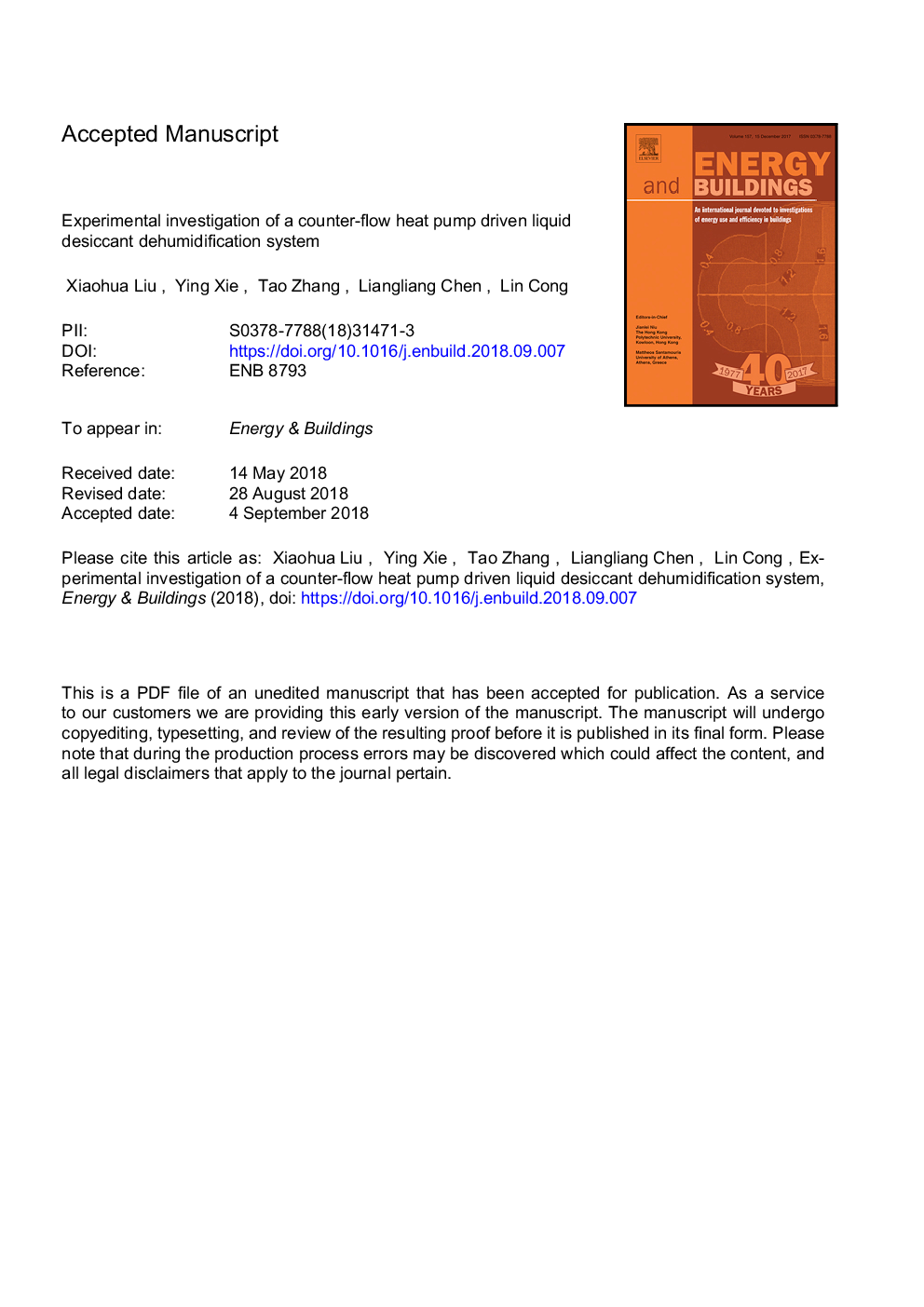| Article ID | Journal | Published Year | Pages | File Type |
|---|---|---|---|---|
| 11024219 | Energy and Buildings | 2018 | 49 Pages |
Abstract
A counter-flow heat pump driven liquid desiccant dehumidification (HPLD) system is considered as an energy-efficient approach for the humid air handling process, with advantages in terms of higher efficiency and simpler configuration. It is found that the adoption of a multi-stage heat pump cycle can improve the system performance, and then experimental tests for the system performance of the HPLD system with a two-stage heat pump cycle are investigated in the present study. The effects of solution flow rate, air inlet parameters including outdoor air and indoor exhaust air, and supplementary water capacity for the system on the system performance are elucidated according to the experimental results. It is found that the solution flow rate could affect the heat recovery performance between outdoor air and indoor exhaust air, and the performance of the heat pump. Thus, there exists an optimal solution flow rate for this counter-flow HPLD system, and the coefficient of performance of the system (COPsys) can be as high as 6.5 under the experimental condition. Besides, the increase of outdoor air inlet parameters and the decrease of indoor exhaust air inlet parameters with enough indoor exhaust air flow rate for the system have favorable effects on the system performance, due to the promotion to the heat recovery performance of the system. And more supplementary water capacity to remove the redundant heating capacity of the system would also improve the system performance mainly through lowering the condensing temperature. However, supplementary water capacity cannot be added too much for the system due to the dehumidification demand. Furthermore, the coefficient of performance of this counter-flow HPLD system is approximately 30% higher than that of a cross-flow HPLD system, handling more dehumidification demand.
Related Topics
Physical Sciences and Engineering
Energy
Renewable Energy, Sustainability and the Environment
Authors
Xiaohua Liu, Ying Xie, Tao Zhang, Liangliang Chen, Lin Cong,
